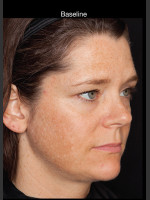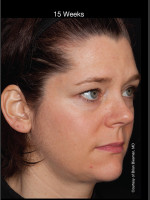Chemical Peels vs Lasers For Skin Treatments
Dr. Zachary: You've had so much experience with chemical peels, what would you tell the average patient who is interested in improving the appearance of their skin, about the differences between lasers and chemical peels?
Dr. Rullan: Lasers have a definite role in dermatology especially with things like vascular lesions and some pigmented lesions, but chemical peels are a lot less expensive. They can help you with common conditions that we see every day in practice. For conditions like acne, instead of buying a device, I could do a salicylic wash at 30 percent on acne or melasma, or Post Inflammatory Pigmentation (PIH), and that combined with other creams, I'm getting pretty good results for a penny.
Dr. Rullan: I have what I call the 4 P's:
- The first P is protection from heat, sun, and irritants.
- The second P is products. (sunscreen)
- The third P is peels. Laser peels help but the salicylic and the glycolic peel can be done every month at a small cost to the patient.
- And then finally pills. (tranexamic acid)
Dr. Rullan: It was used to reduce bleeding in ladies during labor and the side effect profile at that time was huge, so we wouldn?t touch it. But studies from Europe and elsewhere have shown that in a smaller dose and for a period of 3 months or so, there have been virtually no side effects. We've been seeing good results.


